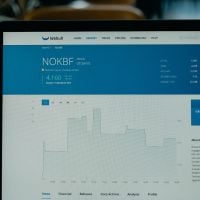Deadline: 12-Sep-22
The Global Environment Facility Small Grants Programme (GEF SGP), implemented by the United Nations Development Programme (UNDP), is inviting applications from qualified organisations for the 7th Operational Phase (OP7) in Malawi.
The objective of the 7th Operational Phase of the Small Grants Programme is “to promote and support community-based innovative, inclusive and impactful initiatives and foster multi-stakeholder partnerships at the local level to tackle global environmental issues in priority landscapes and seascapes”.
Focus Areas
In this operational phase (OP7), non-profit organisations will provide support with innovative solutions to environmental problems faced by communities within the following GEF focal areas:
- Biodiversity,
- Land Degradation,
- Climate Change and
- Chemicals
Along with the focal areas mentioned, the multifocal “strategic initiatives” should be kept in mind while formulating concept notes.
Priorities
- Community-based conservation of threatened ecosystems and species
- Low-carbon energy access co-benefits
- Catalysing sustainable urban solutions
Strategic Initiative
This objective will be achieved through several strategic initiatives as described below. In alignment with the overall GEF-7 programming, SGP will focus its efforts on targeted strategic initiatives that promote integrated approaches in addressing key global environmental issues. As an overarching strategy, SGP will adopt and strengthen its landscape and seascape approach to focus and concentrate its programming on globally recognized important ecosystems (including Key Biodiversity Areas).
- Strategic Initiative 1: Community-Based Conservation of Threatened Ecosystems and Species – Terrestrial
- Under this Strategic Initiative, the SGP will demonstrate for conservation and sustainable use of threatened ecosystems and species in priority landscapes and seascapes through an integrated approach in alignment with GEF-7 biodiversity, land degradation, and international focal area strategies and Impact Program on Sustainable Forest Management.
- Strategic Initiative 2: Sustainable Agriculture and Fisheries, And Food Security
- Specifically, under OP7 the SGP strategic initiative will be implemented by working with local farmers and fishers to promote sustainable agricultural and fisheries production. The approach should also involve moving out of consumer level production systems and re-focusing attention to increasing efficiency and effectiveness of overall food production and value chain addition processes both on-farm and off-farm.
- Strategic Initiative 3: Climate Change – Low Carbon Energy Access Co- Benefits
- In OP7 SGP will continue to provide low-cost bottom-up energy solutions with high potential for carbon emissions reductions using integrated approach going beyond energy sector aiming at increasing climate resilience, reducing poverty, enhancing gender equality and achieving the sustainable development goals. Such solutions will continue to form a crucial part of the “decarbonization” and transition to zero carbon economy, while laying the groundwork of new infrastructure at the community level, addressing energy service needs of rural, urban and remote communities and entrepreneurs, who cannot be served by the central grid in case of electricity or centralized distribution systems in case of cooking and heating fuels.
- Strategic Initiative 4: Local to global coalitions for chemicals and waste management
- The objectives of chemicals, waste and mercury management focal area will support the overall objective of SGP: “To promote and support innovative and scalable initiatives, and foster multistakeholder partnerships at the local level to tackle global environmental issues.” SGP will aim to demonstrate, deploy and transfer innovative community-based tools and approaches, with support from sound chemicals and waste management platforms. Under this the SGP will focus its support towards communities in the forefront of threats related to chemicals and waste either as users or consumers.
- Strategic Initiative 5: Catalyzing Sustainable Urban Solutions
- SGP will pilot activities to target vulnerable people and communities in urban contexts. During the rapid urbanization process, traditional connections, linkages and networks among local communities can be disrupted and lost, making urban environmental governance more challenging. The SGP will promote an integrated management approach to address urbanization challenges from the point of origin (i.e. in rural areas and migration corridors) to the destinations of people’s movement during this urbanization transition. The SGP will focus on improving capacities of key service providers at the local municipality level to promote community-driven and integrated solutions to address low-emission and resilient urban development.
Funding Information
- The maximum amount available per project is US$50,000.
- The maximum duration is 24 months.
Eligibility Criteria
Applying organisation must:
- Be a registered non-governmental organisation (NGO), community-based organisation (CBO), or civil society organisation (CSO) registered in Malawi.
- Only projects targeting Mzimba/Rumphi/Nkhatabay will be considered
- For the strategic initiative on catalysing sustainable urban solutions, organisations in all the major cities (Blantyre, Zomba, Lilongwe and Mzuzu) are eligible to apply
- Have at least three years of relevant experience and proven records of working with communities in environmental and agricultural-related activities
- Demonstrate strong community involvement in the planned or proposed project.
For more information, visit https://www.undp.org/malawi/press-releases/global-environment-facility-small-grants-programme-call-project-concepts









































